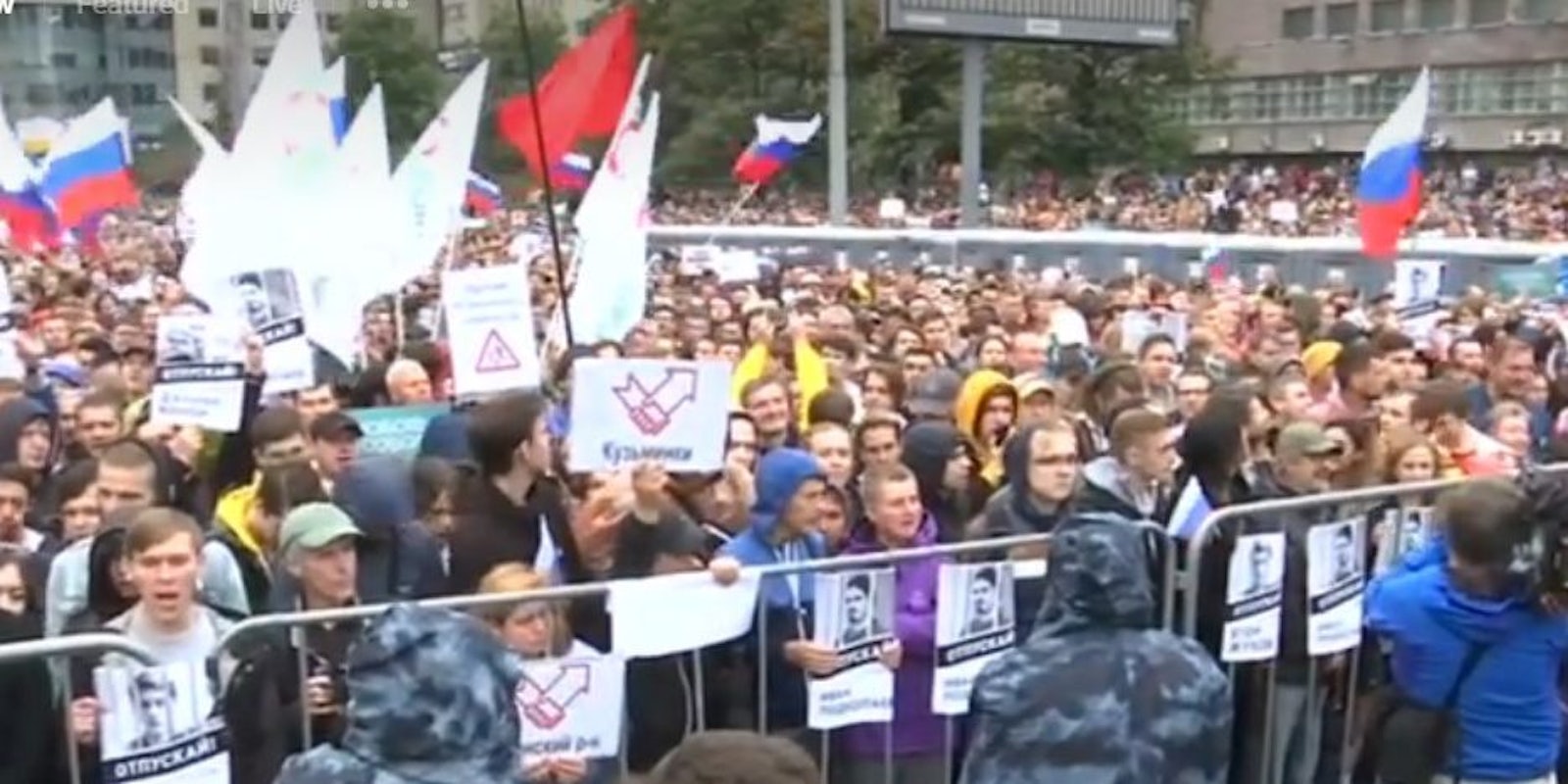On Saturday, thousands of Russians took to the streets to demand fair elections in what was the largest protest in the nation since 2011. On Sunday, Russia issued an ultimatum to Google: Stop allowing protests to be promoted on YouTube.
In the letter, state internet watchdog Roskomnadzor warned Google about YouTube channels using push notifications to disseminate information about “unauthorized (illegal) mass events” intended to disrupt elections.
The demonstrations to which Roskomnadzor apparently refers were actually permitted, and thus legal, Al Jazeera noted.
The letter concludes with the ominous promise that if Google does not change its ways, Russia will regard its inaction as “interference in its sovereign affairs,” a “hostile influence” and an obstructive influence on elections.
Russia is experiencing a rising tide of dissent over the state’s refusal to put opposition candidates on the ballot. While prior protests have focused largely on this issue, President Vladimir Putin is currently facing growing ire over his handling of the economy and the declining standard of living, Gizmodo reports.
Although Putin continues enjoys approval ratings that would make Donald Trump swoon, dissatisfaction over his totalitarian rule—as well as police brutality against demonstrators—has further fueled dissent. The BBC reports that up to 60,000 disgruntled Russians participated in Saturday’s protest, the fifth demonstration in a month. The protests were livestreamed on YouTube; organizers claimed that some videos attracted 50,000 viewers.
As discontent grows, Russia has become more intent on clamping down dissent and sensitive to any perceived attempt to disrupt the status quo. Last week, it accused the United States of meddling in its affairs, something Russia knows a thing or two about, after the U.S. embassy posted a protest route to warn Americans to stay away.
Russia has also historically been suspicious of tech companies.
It previously came at Google with threats of fines if it didn’t remove some sites from search results. Russia has also forced it to take down YouTube videos uploaded by Putin opponent Alexei Navalny.
Last year, Roskomnadzor clumsily attempted to ban encrypted messaging service Telegram, in the process inadvertently blocking millions of IP addresses and resulting in widespread internet service disruptions for weeks. Its Federal Antimonopoly Service is also currently investigating Apple for initially not allowing antivirus provider Kaspersky to register an app with certain parental controls (Apple later gave in).
The country is also undoubtedly watching the Hong Kong protest movement with interest, and taking note of technology’s indispensable role in spreading the word in a manner reminiscent of the Arab Spring.
Google has thus far declined comment.
READ MORE:
- Was Tulsi Gabbard’s Kamala Harris attack done by… Russia?
- Trump speaks by fake presidential seal with Russian symbol, golf joke
- Should you be concerned about your privacy on FaceApp?
Got five minutes? We’d love to hear from you. Help shape our journalism and be entered to win an Amazon gift card by filling out our 2019 reader survey.


